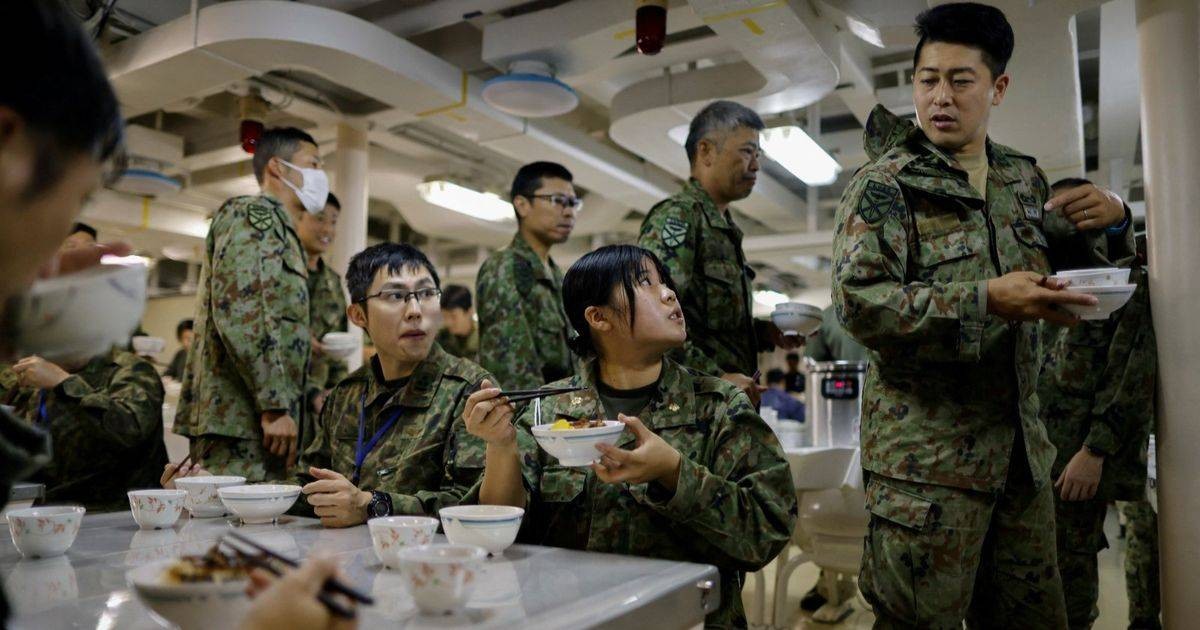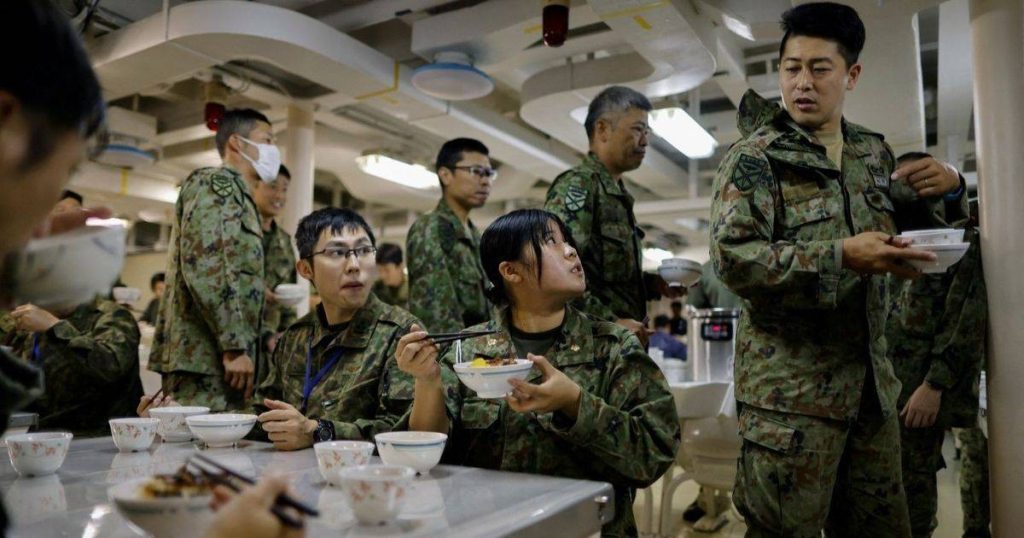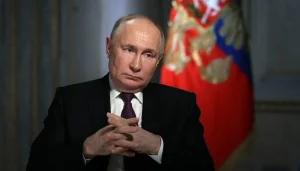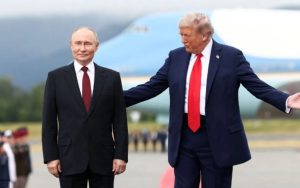Japan seeks to strengthen its military to counter Chinese ambitions.
As the world marks the 80th anniversary of the end of World War II, Japan, which adopted a pacifist approach since its defeat, aims to expand its military ranks to confront Chinese ambitions.
However, it faces difficulties recruiting soldiers. In 2023, Japan began increasing its defense budget to reach 2% of GDP by 2027-2028, while the administration of President Donald Trump urged it to go further.
Tokyo fears Beijing might attempt to take Taiwan by force, potentially dragging the Japanese military into conflict alongside Washington.
Takuma Hiyani, a 19-year-old who joined the army after graduating from school in Amars, aspires especially to help natural disaster victims in his new duties.
The trainee soldier says, “I told myself this job allows me to help my country and be proud of that,” avoiding sensitive questions about national defense.
Hiyani and his comrades endure the sweltering summer heat training in a field in Okinawa, the Japanese island considered the frontline for defending the archipelago, hiding behind small grassy hills to advance toward a virtual enemy.
The young man explains, “Training is tough and requires high physical fitness, but I’m used to it because I played sports at school. What I find exhausting and stressful is using a firearm.”
In 2023, authorities hoped to recruit 20,000 personnel but barely reached half that number, according to the Ministry of Defense.
The result is that the army lacks 10% of its planned strength of 250,000 personnel.
Tokyo seeks to enhance its military capabilities in southwestern areas such as Okinawa, a strategic site for monitoring China, the Taiwan Strait, and the Korean Peninsula.
Officials and military experts say the risky nature of the work, modest salaries, and early retirement around age 56 discourage youth from volunteering.
Recruitment is further challenged by low birth rates and demographic decline in the country.
Kazuyuki Shiory, a member of an infantry battalion in Okinawa, hopes increased military spending will “improve soldiers’ working conditions,” with better air conditioning, enhanced social benefits, and more privacy in sleeping quarters.
He says, “We are looking for a wide range of qualifications because national security conditions have become diverse, ranging from cybersecurity to space defense, electronic warfare, and of course intelligence work.”
Given the security situation, Prime Minister Shigeru Ishiba announced in June that expanding the Defense Forces ranks is an absolute priority.
However, the country’s military past evokes painful memories for many Japanese. The constitution drafted by the United States after World War II, which enjoys strong popular support, prohibits Tokyo from resorting to force and does not recognize the Self-Defense Forces as an official army.
A Gallup International poll published last year showed only 9% of Japanese respondents were willing to fight to defend their country in case of war, while 50% refused.
By comparison, 46% of South Koreans and 41% of Americans expressed readiness to serve their country if necessary.
Recently, Ryuichi Oryuki, former Chief of Staff of the Japanese Forces, noted that Japanese public opinion has always focused on diplomatic means and “there hasn’t been much discussion about ways to maintain peace and security,” adding, “I hope public understanding of national defense realities deepens.”














Recommended for you
Exhibition City Completes About 80% of Preparations for the Damascus International Fair Launch
Unified Admission Applications Start Tuesday with 640 Students to be Accepted in Medicine
Al-Jaghbeer: The Industrial Sector Leads Economic Growth
Talib Al-Rifai Chronicles Kuwaiti Art Heritage in "Doukhi.. Tasaseem Al-Saba"
Ministry of Media Announces the 10th Edition of 'Media Oasis'
Afghan Energy and Water Minister to Al Jazeera: We Build Dams with Our Own Funds to Combat Drought